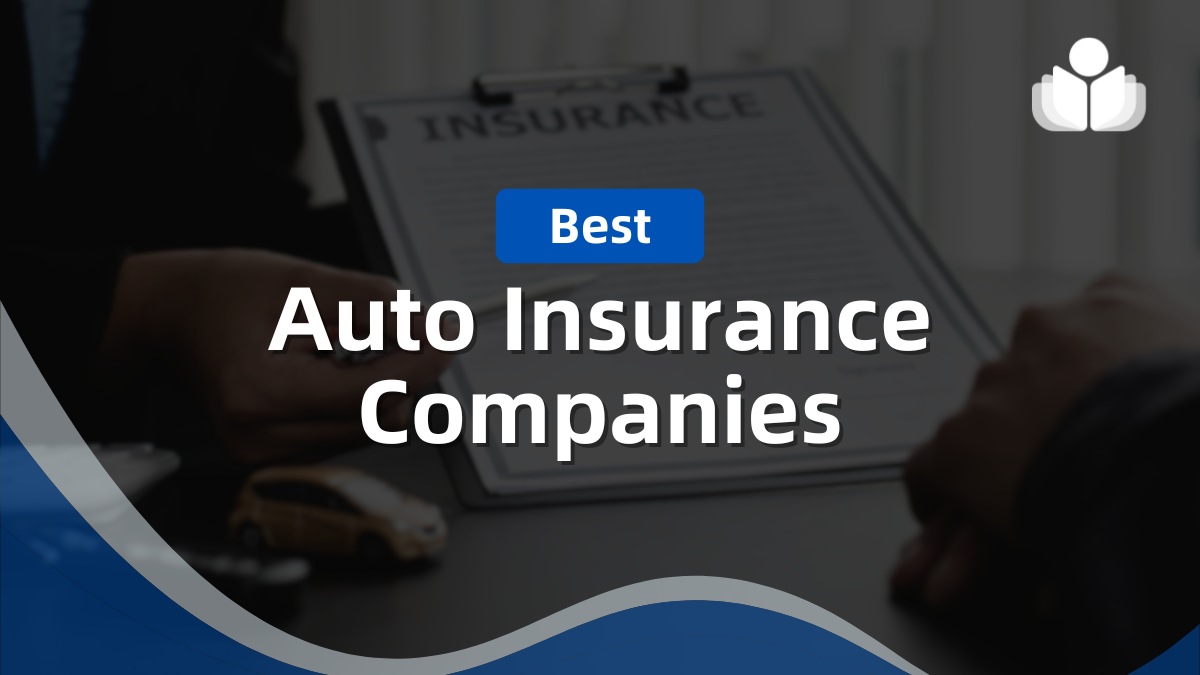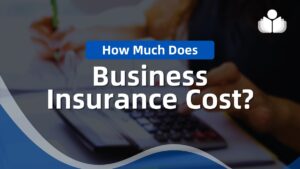Looking for the best auto insurance? Finding the right coverage can feel overwhelming if your current policy is up for renewal or you’ve just bought a new ride. It’s easy to get lost between confusing terms, hidden fees, and endless options. But don’t worry, you’re in the right place.
I’ve done the homework for you, digging into customer reviews, comparing quotes, and analyzing the top providers. Whether you’re after the lowest rates, excellent customer service, or comprehensive protection, this guide will help you find the perfect policy to fit your needs.
>> Secure Your Car with Best Auto Insurance Now! >>
Top Auto Insurance Companies in 2025
Let’s get straight to it, here are the top auto insurance providers that offer great coverage, fair pricing, and excellent customer service.
- Best Auto Insurance – Best Overall
- Auto Policy Market – Best for Discounts
- Geico – Best for Budget Shoppers
- State Farm – Best for Customer Service
- Progressive – Best for High-Risk Drivers
- Allstate – Best for Add-On Coverage
- USAA – Best for Military Families
- Nationwide – Best for Low Mileage Drivers
- Farmers – Best for Personalized Coverage
- Liberty Mutual – Best for Customizable Policies
Best Auto Insurance is the top choice overall due to its well-rounded offerings catering to a broad range of drivers. It provides competitive pricing, ensuring affordability without sacrificing essential features. The company is known for its fast claims processing, making it a reliable option for those who want quick and hassle-free assistance in case of an accident. Customer service is another area where it excels, offering responsive support via phone, online, and through its mobile app.
A key benefit of Best Auto Insurance is its accident forgiveness program, which prevents a driver’s first accident from causing an increase in their insurance rates. This feature is especially valuable for those who may have occasional mishaps on the road.
- Fast claims processing
- Accident forgiveness program
- User-friendly mobile app
- Not the cheapest for young drivers
- Not available in all states
>> Best Auto Insurance Made Easy Get Covered >>
For drivers looking to save money on their auto insurance, Auto Policy Market is one of the best choices due to its extensive discount offerings. This provider offers discounts for safe drivers, students, policy bundling, and low-mileage driving. These discounts can significantly reduce the cost of coverage, making it an attractive option for budget-conscious individuals.
The company’s online quote tool is designed for convenience. It allows customers to quickly and easily compare different policy options and see how much they can save based on their eligibility for various discounts. Auto Policy Market is particularly beneficial for drivers who don’t log many miles annually, as their low-mileage discounts can make a noticeable difference in premium costs.
- Tons of discount options
- Easy online quote tool
- Great for low-mileage drivers
- Discounts vary by state
- Fewer local agents
>> Explore Auto Policy Market Options >>
Geico is widely recognized as one of the most affordable auto insurance providers in the United States. Its ability to offer consistently low rates while maintaining quality coverage makes it a favorite among budget-conscious drivers. Whether you are a new driver, an experienced motorist, or someone looking to switch providers, Geico’s competitive pricing ensures you get the protection you need at a cost that won’t break the bank.
The company’s digital presence is a major strength. Its mobile app is one of the best in the industry, offering seamless policy management, digital ID cards, and the ability to file claims quickly. This focus on technology makes it easy for customers to handle their insurance needs on the go. Geico’s coverage is also available nationwide, meaning that no matter where you live, you can take advantage of its affordable rates and comprehensive policies.
- Consistently lower rates
- User-friendly mobile app
- Available nationwide
- Customer service isn’t always great
- Limited local agent support
>> Switch to Geico for Better Protection >>
State Farm is a standout choice for drivers who value excellent customer service and personalized support. Unlike many other insurance companies that primarily operate online, State Farm has a large network of local agents who provide one-on-one assistance. This hands-on approach makes it easier for customers to get answers to their questions, receive tailored policy recommendations, and navigate the claims process smoothly.
One of State Farm’s biggest strengths is its bundling options. If you need both home and auto insurance, you can save money by bundling your policies, making it a cost-effective choice for homeowners. Its claims process is highly rated, with policyholders frequently praising the company for its efficiency and fairness when handling claims.
- Large network of local agents
- Great bundling options
- Highly rated claims process
- More expensive for younger drivers
- Discounts aren’t as generous as competitors
>> Explore State Farm Options >>
Progressive is one of the best choices for drivers with a history of accidents, tickets, or other risk factors. Unlike many insurers that charge excessively high rates for high-risk drivers, Progressive provides some of the most competitive pricing for those with less-than-perfect driving records.
One of its standout features is the “Name Your Price” tool, which allows customers to set their budget and receive policy options that fit within that range. This flexibility makes it easier for drivers to find coverage that meets their financial situation.
Progressive also offers the Snapshot program, a usage-based discount system that rewards safe driving habits. Using telematics to track driving behavior, safe drivers can qualify for additional discounts over time. While Progressive is an excellent choice for high-risk drivers, some drivers with clean records may find lower rates elsewhere.
- Best rates for drivers with accidents or tickets
- Customizable policy options
- Strong usage-based discounts
- Higher premiums for some drivers
- Customer service can be hit or miss
Read more: Is Progresssive Insurance Worth It?
>> Explore Progressive Options >>
Allstate is an excellent choice for drivers who want a highly customizable policy with various add-on options. This insurer allows policyholders to tailor their coverage by selecting features like accident forgiveness, roadside assistance, and new car replacement coverage, making it a great option for those who want extra protection.
Financial stability is another strong point for Allstate, ensuring the company can reliably handle claims and payouts. Allstate provides attractive bundling options, allowing customers to save money by combining auto insurance with home, renters, or life insurance policies.
- Plenty of add-ons
- Strong financial stability
- Good bundling options
- Higher-than-average premiums
- Fewer discount options
>> Explore Allstate Options >>
USAA consistently ranks as one of the best auto insurance providers in the country, particularly for military members and their families. With some of the lowest rates available, USAA is an ideal choice for active-duty service members, veterans, and their families who want affordable, high-quality coverage.
One of USAA’s strongest advantages is its exceptional customer service. Policyholders frequently report a smooth claims process, responsive support, and a company that truly understands the unique needs of military families. Additionally, USAA offers exclusive military-specific benefits, such as reduced rates for those storing their vehicles on base and flexible policies for service members deployed overseas.
- Lowest rates for military families
- Excellent customer service
- Military-specific benefits
- Only available to military members
Nationwide is an excellent choice for low-mileage drivers, thanks to its SmartMiles program. This usage-based insurance plan allows policyholders to pay for coverage based on how much they drive. It’s an ideal option for retirees, remote workers, or those who use public transportation frequently and only drive occasionally.
Beyond its pay-per-mile savings, Nationwide offers various discounts that can help lower premiums, including safe driver discounts, bundling discounts, and good student discounts. The company also has a strong claims reputation, ensuring a smooth filing experience for accident-related damages.
- Good for low-mileage drivers
- Many discount opportunities
- Good claims reputation
- Limited local agents in some states
>> Explore Nationwide Options >>
Farmers is known for providing highly personalized coverage, making it a great option for drivers who want a policy tailored to their specific needs. Farmers takes a hands-on approach with a large network of local agents, ensuring policyholders get one-on-one guidance when choosing coverage.
One of Farmers’ biggest advantages is its flexibility in coverage customization. Whether you need higher liability limits, specialized add-ons, or bundling options, Farmers allows you to adjust your policy to fit your lifestyle. Additionally, Farmers provides good bundling discounts, helping customers save money when they combine home and auto insurance.
- Personalized coverage options
- Good customer service
- Great bundling discounts
- Higher premiums for some drivers
Liberty Mutual is an excellent choice for those who want maximum flexibility in their auto insurance policies. Unlike many insurers that offer rigid policy structures, Liberty Mutual allows drivers to pick and choose only the coverage they need, helping them avoid paying for unnecessary extras.
A major benefit of Liberty Mutual is its strong bundling options, which allow customers to combine auto, home, renters, or other types of insurance for significant savings. The company also provides a wide range of online tools, making it easy for policyholders to manage their policies, file claims, and track repairs from their smartphones or computers.
- Very customizable policies
- Good for bundling
- Solid online tools
- Higher-than-average base rates
>> Explore Liberty Mutual Options >>
Best Auto Insurance Companies – Buyer’s Guide
How to Find the Best Car Insurance Company for You
Finding the best car insurance company requires carefully considering your needs, budget, and driving history. With numerous providers offering various coverage options and pricing structures, it’s essential to compare policies to find the one that suits you best. The right insurer should provide adequate protection, competitive pricing, excellent customer service, and a hassle-free claims process.
The first step in choosing the best provider is determining your coverage needs. If you own a new or high-value vehicle, you may need comprehensive collision coverage to protect you against accidents, theft, and non-collision-related damage. However, a liability-only policy may be sufficient if you drive an older vehicle with a low market value. In cases where a car is financed or leased, full coverage is usually required by the lender.
Once you have identified the type of coverage you need, the next step is to compare quotes from multiple insurance companies. This allows you to evaluate pricing and find the most cost-effective option. Online comparison tools can simplify this process by providing an overview of different insurers and their respective premium rates. It’s always advisable to request quotes from at least three to five companies to get an accurate picture of your options.
Customer reviews and ratings should also be factored into your decision. Looking at feedback from existing policyholders on platforms such as Trustpilot, the Better Business Bureau (BBB), and J.D. Power can provide insights into an insurer’s claims process, customer support quality, and overall reliability. A company with high ratings and positive customer experiences is more likely to offer seamless service and fair claim settlements.
Discounts can significantly lower insurance costs. Many providers offer discounts for safe drivers, bundling multiple policies, good students, low-mileage drivers, and other factors. Checking which discounts you qualify for can help reduce your premiums while still maintaining comprehensive coverage.
It’s also important to consider the financial strength of an insurance company before making a decision. Organizations like AM Best and Standard & Poor’s provide ratings that indicate whether a company has the financial resources to pay out claims efficiently. Choosing a financially stable insurer ensures that you won’t face difficulties processing your claims.
Customer support and accessibility shouldn’t be overlooked. Some insurance companies provide round-the-clock claims assistance, mobile apps for policy management, and local agents who can offer in-person service.
Depending on your preference, you may want a provider with a strong digital presence or one that offers personalized support through local offices. By considering these factors carefully, you can find a car insurance company that delivers the right combination of coverage, affordability, and service quality.
How Does Car Insurance Work?
Car insurance is designed to provide financial protection for vehicle accidents, theft, or other damages. It’s an agreement between the policyholder and the insurance company, where the insurer agrees to cover specific losses in exchange for a monthly or annual premium. This protection helps drivers manage the financial risks of owning and operating a vehicle.
When purchasing an insurance policy, the policyholder agrees to pay premiums that are determined based on several factors, including their driving history, age, location, and vehicle type. The premium amount varies depending on the level of coverage selected, with comprehensive and collision policies typically costing more than basic liability coverage.
Once a policy is active, it provides coverage based on the agreed terms. If an accident occurs or a vehicle sustains damage, the policyholder must file a claim with their insurer. The insurance company then evaluates the claim, assesses the damage, and determines the amount that will be covered. This process involves an investigation to establish the cause of the incident and ensure that it falls within the scope of the policy.
Many policies include a deductible, which the policyholder must pay out-of-pocket before the insurance company covers the remaining costs. For example, if an accident results in $3,000 in damages and the deductible is $500, the driver is responsible for paying the first $500, while the insurer covers the remaining $2,500.
Liability coverage plays a crucial role in protecting drivers from legal and financial responsibility in the event of an accident. If a driver is found at fault in a collision, their liability insurance will cover the costs of medical bills and property damage for the affected parties, preventing the driver from paying for these expenses out-of-pocket.
Every insurance policy has specific terms and conditions, so policyholders must read and understand their contracts carefully. Knowing what is covered, what is excluded, and how the claims process works ensures that drivers are adequately protected and can make informed decisions about their coverage.
>> Get a Quote for Best Auto Insurance in Minutes >>
Types of Car Insurance
Car insurance policies include several types of coverage, each designed to protect against specific risks and financial liabilities. Choosing the right coverage depends on your driving habits, vehicle type, and personal financial situation.
Liability Insurance
Liability insurance is the most basic and commonly required type of coverage in most states. It covers bodily injury and property damage sustained by other parties if the policyholder is found at fault in an accident. This coverage doesn’t pay for the policyholder’s own vehicle repairs or medical expenses. Still, it ensures that they aren’t personally responsible for paying damages to other drivers, passengers, or property owners.
Collision Insurance
Collision insurance covers the cost of repairing or replacing a policyholder’s vehicle if it’s damaged in an accident, regardless of fault. This coverage is particularly beneficial for owners of new or high-value vehicles who want to protect their investments. Unlike liability insurance, which only pays for damages to others, collision insurance ensures that the policyholder’s car can be repaired or replaced.
Comprehensive Insurance
Comprehensive insurance protects against non-collision-related damages such as theft, vandalism, natural disasters, falling objects, or animal collisions. This coverage is essential for those who live in areas prone to severe weather, high crime rates, or wildlife-related incidents. It covers unexpected damages that are outside the driver’s control, making it a valuable addition to any policy.
Personal Injury Protection (PIP)
In states with no-fault insurance laws, Personal Injury Protection (PIP) is required. This coverage pays for medical expenses, lost wages, and even funeral costs for the policyholder and their passengers, regardless of who caused the accident. PIP helps cover medical bills quickly without the need for lengthy legal battles over fault.
Uninsured and Underinsured Motorist Coverage
Uninsured motorist coverage protects drivers in the event of an accident with someone who has no insurance or insufficient coverage to pay for damages. If an uninsured or underinsured driver causes an accident, this coverage covers the policyholder’s medical expenses and vehicle repairs. This type of protection is particularly important because not all drivers comply with state insurance requirements.
Gap Insurance
Gap insurance is crucial for individuals who have financed or leased a vehicle. If a car is totaled or stolen, this coverage pays the difference between what the car is worth (actual cash value) and the amount still owed on the loan. Without gap insurance, drivers could be left paying off a loan for a vehicle they no longer own.
Medical Payments Coverage (MedPay)
Medical payment coverage, or MedPay, helps cover medical expenses for the policyholder and their passengers, regardless of fault. It’s similar to PIP but typically offers fewer benefits. This coverage can be especially useful for drivers who don’t have strong health insurance policies.
Choosing the right combination of these coverages depends on the driver’s financial situation, vehicle type, and state requirements. While some coverage types, like liability insurance, are required by law, others are optional but can provide significant financial protection.
>> Find Affordable Best Auto Insurance Coverage >>
What Factors Affect the Cost of Car Insurance?
The cost of car insurance varies significantly from person to person. Insurance companies use a range of factors to determine how much a driver pays for coverage. Understanding these factors can help drivers find ways to lower their insurance costs while maintaining adequate protection.
Driving History
One of the most important factors insurers consider is a driver’s past behavior on the road. Accidents, traffic violations, speeding tickets, and DUIs can lead to significantly higher premiums because they indicate a higher level of risk. Conversely, a clean driving record often results in lower rates, as insurers view these drivers as less likely to file claims.
Age and Experience
Younger and less experienced drivers generally pay higher premiums because they are statistically more likely to be involved in accidents. Drivers under 25 face some of the highest rates, while older, more experienced drivers tend to receive lower premiums. However, seniors may also see increased rates due to declining reaction times and other age-related risks.
Location and Zip Code
Where a driver lives plays a significant role in determining their insurance costs. Urban areas with heavy traffic, high accident rates, and increased vehicle thefts tend to have higher premiums than rural areas with lower risks. Different states have varying minimum insurance requirements, impacting pricing.
Vehicle Type and Value
The make, model, year, and overall value of a vehicle affect insurance rates. Luxury cars, sports cars, and high-performance vehicles often cost more to insure because they are more expensive to repair or replace. On the other hand, vehicles equipped with advanced safety features, anti-theft devices, and good crash ratings may qualify for discounts.
Coverage Level and Deductibles
The level of coverage a driver selects directly impacts their insurance premium. Full coverage policies (liability, collision, and comprehensive insurance) are more expensive than minimum liability coverage. However, increasing the deductible, the amount a policyholder pays out-of-pocket before insurance covers the rest, can help lower monthly premiums. A higher deductible means lower premiums but paying more in the event of a claim.
Credit Score (in Most States)
In many states, insurers use credit-based insurance scores to assess a driver’s risk level. A higher credit score is often associated with lower premiums, as insurers believe these individuals are more financially responsible and less likely to file claims. Conversely, drivers with poor credit may face higher rates. However, some states, such as California, Hawaii, and Massachusetts, prohibit using credit scores in determining car insurance premiums.
Annual Mileage and Driving Habits
Drivers who log a lot of miles each year are more likely to be involved in accidents and, as a result, may pay higher premiums. Those who drive less frequently, such as remote workers, retirees, or individuals who rely on public transportation, may qualify for low-mileage discounts. Some insurers even offer usage-based insurance programs, where drivers pay premiums based on how much and how safely they drive.
Discounts and Bundling Opportunities
Many insurers offer discounts to help lower costs. Some of the most common discounts include:
- Safe driver discounts for those with a clean driving record
- Multi-policy discounts for bundling auto insurance with home or renters insurance
- Good student discounts for young drivers with high grades
- Low-mileage discounts for drivers who don’t use their cars frequently
- Anti-theft device discounts for vehicles equipped with security systems
- Taking advantage of these discounts can lead to significant savings on car insurance
State Insurance Requirements
Each state has different minimum insurance requirements, which can impact costs. States with higher required coverage limits generally have higher average insurance rates. Some states also have no-fault insurance laws, which require drivers to carry Personal Injury Protection (PIP) coverage, adding to the overall cost.
By understanding these factors, drivers can take proactive steps to lower their premiums. Maintaining a clean driving record, choosing a vehicle with strong safety features, improving credit scores, and comparing multiple insurance providers can all help reduce the cost of auto insurance while still ensuring sufficient protection.
>> Protect Your Ride With the Best Auto Insurance >>
FAQs About Auto Insurance
>> Compare Best Auto Insurance Plans & Save >>
Final Thoughts
Shopping for auto insurance can seem overwhelming, but it doesn’t have to be. The smart approach is to compare quotes from multiple providers, explore available discounts, and choose a plan that balances cost, coverage, and customer service.
- Looking for low rates? Start with Geico or Auto Policy Market
- Want top-notch customer service? State Farm is a trusted favorite
- Got a few tickets or accidents? Progressive could be your best bet
Remember, auto insurance isn’t just a legal requirement, it’s peace of mind for you and your wallet. Take a little time to find the right fit. Your future self will be glad you did. Drive safe!
>> Get the Best Auto Insurance & Drive With Confidence >>
 Sections of this topic
Sections of this topic


























